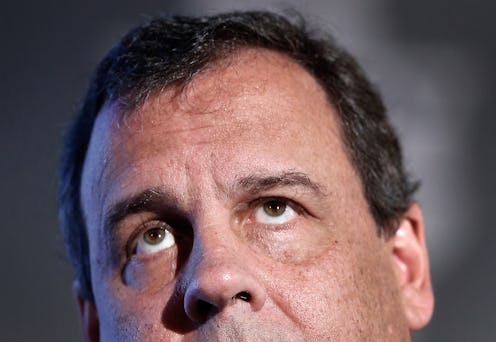News
Does Weight Matter At The Polls?
A Michigan State University professor has conducted a study that suggests overweight candidates get less votes than their thinner rivals. The study was carried out by Professor Mark Roehling and his wife Patricia, herself a psychology professor at Michigan's Hope College, on the suspicion that weight discrimination — already a studied and well-documented issue in areas like employment — might have a discernible impact on voters. And their finding was exactly that: Overweight candidates have a harder time getting on the ballot in the first place, and when they do, they don't get as many votes.
The research was compiled from data from the 2008 and 2012 Senate elections, though not by using a precise measure of weight or obesity — just assessing the candidates by their outward appearances. Research assistants determined whether the candidates, culled from 126 different elections, qualified as overweight or not.
Still, for the purposes of discerning weight discrimination in the voting public, this actually does seem valuable. Latent discriminations against a politician for the shape of their body, after all, have a lot more to do with how they look than it does the actual number on the scale. The public isn't always privy to precise information about the weight, fitness, or health of public figures, but the judgments that go along with visible heaviness persist regardless.
The study also found a predictable, discouraging discrepancy by sex — female candidates were uniquely underrepresented on ballots. Both men and women, however, received less votes on average than thinner candidates did — and indeed, the bigger the visible weight difference between the two, the worse the divide.
This is an issue which obviously looms over the potential Presidential candidacy of New Jersey Governor Chris Christie, who whilst fending off criticism relating to his administration's Bridgegate scandal, has also lost a dramatic amount of weight over the last year. Christie underwent a secret bariatric surgery procedure in Feb. 2013 to shrink the size of his stomach and help with his weight loss process.
The effort he's put in hasn't stopped the jokes, however — just one of the ways in which mainstream fat-shaming remains surprisingly permissible. And when such clumsy comedic barbs are permissible in polite society — no less an institutional affair like the White House Correspondent's Dinner, for example — it's not all that hard to imagine it might play a role at the polls, too.
And maybe we can all try to be a little more self-examining about this sort of thing? As it stands, weight discrimination is obviously harmful to its victims, but it's also becoming more and more apparent to have a corrosive effect on society. In other words, fat-shaming isn't just bad for its targets. It's bad for everyone.
